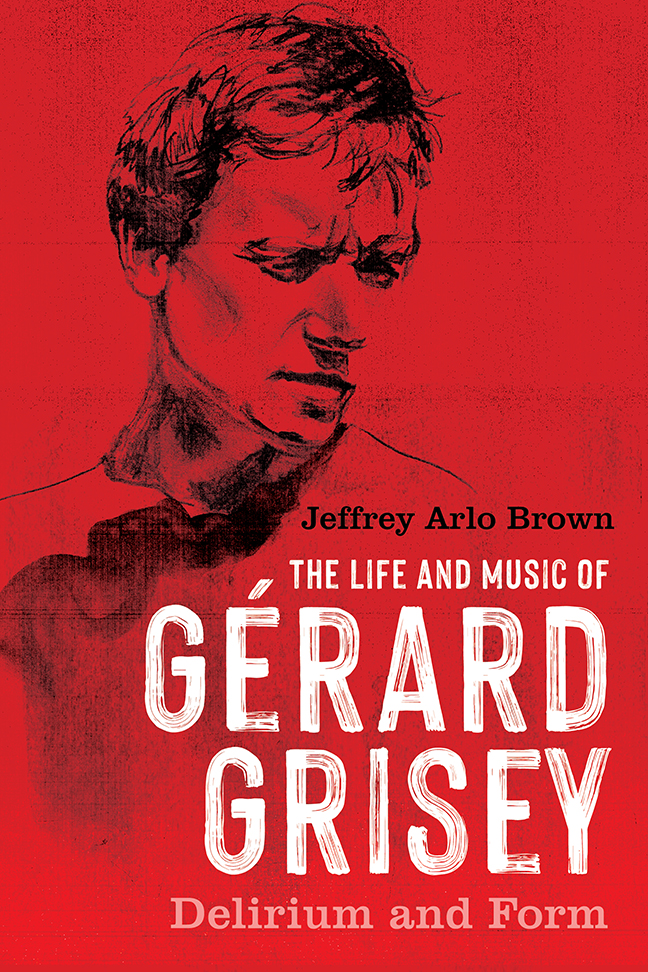Book contents
- Frontmatter
- Contents
- List of Illustrations
- Acknowledgments
- One The Lost Voice (1946–61)
- Two The Carnal Shell (1961–65)
- Three The Rhythm of Love (1965–67)
- Four Exchange Beyond Language (1968–70)
- Five The Silence that Attracts (1970–72)
- Six The Sensual Embrace (1972–74)
- Seven Ultimate Fusion (1974–78)
- Eight Astarte (1978–79)
- Nine Extreme Pleasure, Extreme Pain (1980–82)
- Ten The Grains of Sound (1982–86)
- Eleven Absolute Love (1986–88)
- Twelve Seduced by the Star (1988–91)
- Thirteen Suggestions of the Infinite (1991–96)
- Fourteen Nut (1996–98)
- Fifteen Berceuse
- Appendix: Recordings of Music by Gérard Grisey
- Bibliography
- Index
Ten - The Grains of Sound (1982–86)
Published online by Cambridge University Press: 17 December 2023
- Frontmatter
- Contents
- List of Illustrations
- Acknowledgments
- One The Lost Voice (1946–61)
- Two The Carnal Shell (1961–65)
- Three The Rhythm of Love (1965–67)
- Four Exchange Beyond Language (1968–70)
- Five The Silence that Attracts (1970–72)
- Six The Sensual Embrace (1972–74)
- Seven Ultimate Fusion (1974–78)
- Eight Astarte (1978–79)
- Nine Extreme Pleasure, Extreme Pain (1980–82)
- Ten The Grains of Sound (1982–86)
- Eleven Absolute Love (1986–88)
- Twelve Seduced by the Star (1988–91)
- Thirteen Suggestions of the Infinite (1991–96)
- Fourteen Nut (1996–98)
- Fifteen Berceuse
- Appendix: Recordings of Music by Gérard Grisey
- Bibliography
- Index
Summary
In the fall of 1982, Grisey officially began his teaching duties as Assistant Professor of Composition at the University of California at Berkeley. He moved into a house at 1934 San Antonio Avenue, in the Berkeley Hills, that had a view of the Pacific Ocean. He went by himself first to get set up. Jocelyne and Raphaël joined him later.
Behind the prestigious composition department at the University of California at Berkeley towered American neoclassical composer Roger Sessions. In 1928, Sessions had helped Aaron Copland, the artist whose name became the byword for musical Americana, organize a series of concerts. Sessions's music was vital, melodic, and rhetorical, rather than textural; he drew inspiration from twentieth-century composers such as Rachmaninoff, Bartók, and Hindemith. This style was a continent apart from the work that inspired Grisey as a young man: the more experimental pieces of Messiaen, Ligeti, and Stockhausen. Sessions taught in Berkeley between 1945 and 1950, and he served as a visiting professor in the 1966–67 academic year, when he was awarded an honorary degree.
Sessions died in 1985 at almost ninety. His legacy at Berkeley lived on most clearly in the person of Andrew Imbrie, a gifted child prodigy and somewhat conventional modernist composer who taught in the composition department from 1949 to 1991. That long tenure meant Imbrie had already been at Berkeley for over three decades before Grisey arrived at the university. Imbrie was the “old master of the department” by that time, and, despite a certain kindness, was not known for his social graces.
Imbrie was not thrilled by Grisey the interloper. One evening, Imbrie, who had the prim manner of a patrician Princetonian (his alma mater), went to a composers’ concert at the university at which excerpts of Les espaces acoustiques were performed. Like some German critics at Darmstadt, Imbrie heard something offensively countercultural in the music. One student of Imbrie’s, who came to a lesson gushing about Grisey, recalled Imbrie's response: “You know, I don't smoke marijuana.” The composer Evan Ziporyn, who began studying with Grisey in 1984, heard Imbrie react in a similar way:
He was carrying on for days about the piece. Going on about, “I don't do drugs, I don't need to space out.” This ridiculous idea that this was somehow music to space out to, and that it was related to drug culture, which was by then certainly anachronistic.
- Type
- Chapter
- Information
- The Life and Music of Gérard GriseyDelirium and Form, pp. 171 - 202Publisher: Boydell & BrewerPrint publication year: 2023



